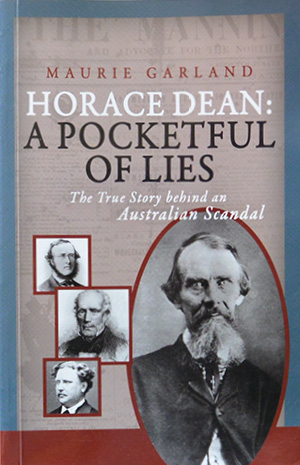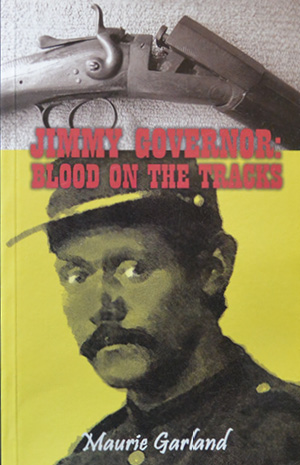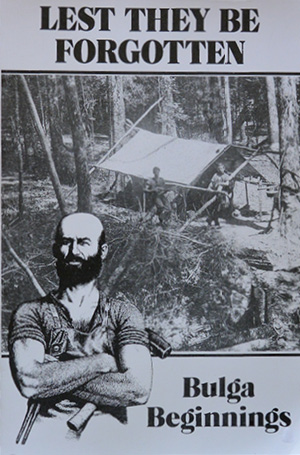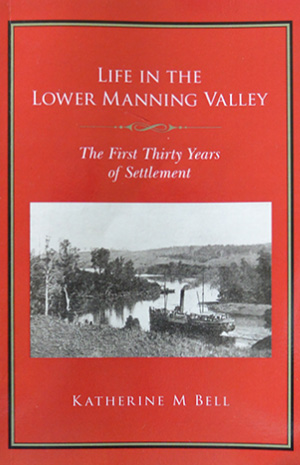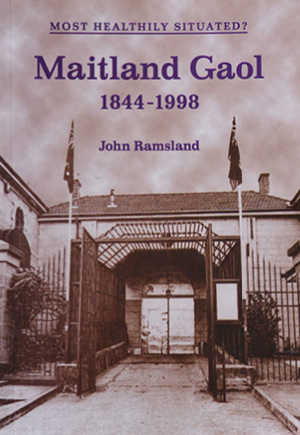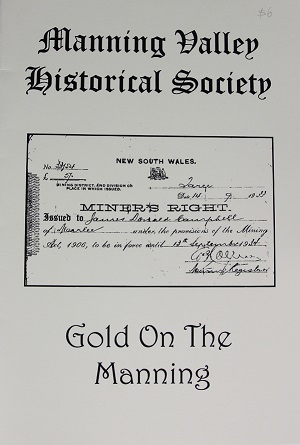
revised by Maurie Garland and Glenda Smith
The story of the search for gold in the Manning mirrors the rise and fall of the area’s economic prosperity. In prosperous times there was little interest in the search; however in periods of recession (1860s, 1880s-90s and 1930s) this changed and interest increased. Our story focuses on the two most successful fields on the Manning.
Softcover
36 pages
14.5cm x 21 cm
First printed 1997
Reprinted 2002 & 2018
cost $8
Mal Rattray & Maurie Garland
This book gives a smorgasbord of Wingham’s history with written details from information sourced from the Archives of the Manning Valley Historical Society.
Softcover
68 glossy pages with over 200 photographs
21 cm x 29.5 cm
Printed 2005
Cost: $20
Arthur Cooper
Timber getters first became interested in the Manning River catchment in about 1828 when the abundance and quality of cedar became known and, later, for the enormous resources of high quality hardwood construction timbers that are milled today.
In this set of seven books Arthur has recorded the history of some eighty sawmills.
Book One includes: Scotts Creek and Summer Hill Sawmills (Mitchells Island), Coopernook, Pampoolah, Redbank, Old Bar Forest and Walterston (Lansdowne) sawmills.
Softcover
100 pages with photographs
21 cm x 29.5 cm
Printed 2015
Cost: $25
Arthur Cooper
Book Two includes: HG Watson Sawmills at Bulga and Wherrol Flat, Bulga Sawmill Co. at Wherrol Flat and Bobin, Donaldsons at Bulga and Bobin, Glenwarrin Timber Co. at Bulga, Oaks at Doyles River, Kings Head, Green, Allan Taylor, Wallis, Goldsmith, Anderson & Cooper, and Slater, Doyles River Sawmills: Gam, Mulhearn, Trotter & Trotter, and Boyd & Boaden.
Softcover
98 pages with colour and black & white photographs
21 cm x 29.5 cm
Printed 2015
Cost: $25
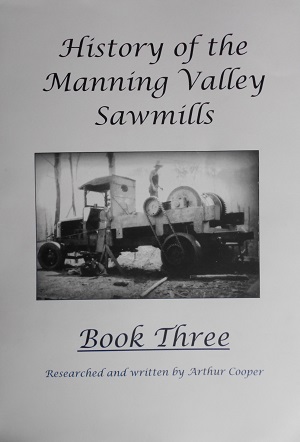
Arthur Cooper
Book Three includes saw milling companies Graham Timber Co., Eriksson’s, Clarke’s, Duncan’s, Keppie, Lee & Jones, George Dunn Logging, McBurnie’s, Douglass, Killabakh Sawmills, Donaldson’s Excelsior Sawmill.
Softcover
90 pages with black & white and colour photographs
21 cm x 29.5 cm
Printed 2015
Cost: $25
Arthur Cooper
In Book Four Arthur explores the history of sawmills in the Mount George, Bundook, and Marlee areas .
Softcover
93 pages with colour and black & white photographs
21 cm x 29.5 cm
Printed 2015
Cost: $25
By Arthur Cooper
In Book Five Arthur explores the history of sawmills in the Lansdowne, Hannam Vale, Moorland, Johns River, Crowdy Head and Harrington areas.
Softcover
96 pages with photographs
21 cm x 29.5 cm
Printed 2016
Cost: $25
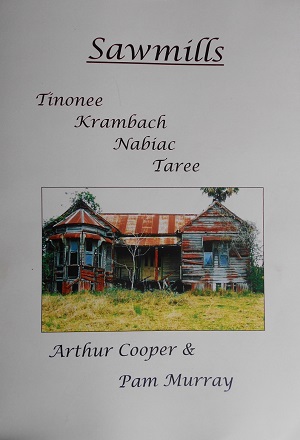
Arthur Cooper and Pam Murray
In book number six Arthur explores the history of sawmilling in Tinonee, Krambach, Nabiac, and Taree.
Softcover
101 pages with photographs, black & white and colour
21 cm x 29.5 cm
printed 2017
cost $25
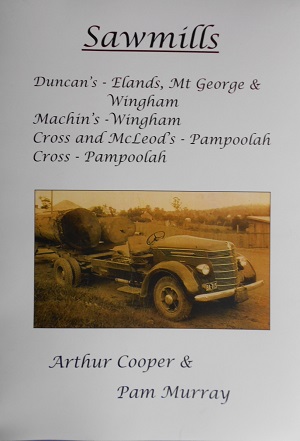 Arthur Cooper and Pam Murray
Arthur Cooper and Pam Murray
In Book seven, Arthur explores the history of sawmilling in Duncan’s at Elands, Mt. George and Wingham, Machin’s at Wingham, Cross and McLeod’s at Pampoolah, Cross’s at Pampoolah.
Softcover 97 pages with black & white and colour photographs
21 cm x 29.5 cm
printed 2017
cost $25
Maurie Garland
American-born Horace Dean had arrived in this Colony in 1849. A doctor and magistrate of high repute, he became the first mayor of Angaston in South Australia. The popular and charismatic Horace Dean later moved on to New South Wales, where he published and edited a newspaper. He became a Member of Parliament and was elected mayor of Grafton.
But was he who he said he was?
Softcover
294 pages
13.5 cm x 21 cm
Printed 2011
Cost: $27
Maurie Garland
Jimmy Governor challenged the white man’s Aboriginal stereotype in 1900. He was highly intelligent, better educated than many of his white contemporaries, personable, a hard worker, and was married to a white woman.
So how did Jimmy become a mass murderer?
Using meticulous research, Maurie Garland provides a new analysis of the events that gripped Australia in 1900.
Softcover
370 pages
13.5 cm x 21 cm
Printed 2009
Cost: $25
Bulga Beginnings
Lawrence R. Alley
For and on behalf of the Back to Bulga Committee
This book was published “to try and revive the memory of most of those early settlers who came here with a big heart and a tremendous ambition”.
Softcover
37 pages
Includes class photo, Honour Roll, family photos and photos of work and play
15 cm x 21 cm
Printed 1982
Cost: $10
The First Thirty Years of Settlement
Katherine M. Bell
This book is a comprehensive account of the early settlement of the lower Manning Valley and the personalities who were instrumental in establishing and developing settlements in the Valley. It also recounts the role of women in supporting menfolk and families in the harsh conditions that prevailed in this pioneering era.
Softcover
223 pages
Includes extensive photographs and maps
14 cm x 21.5 cm
Printed 2016
Cost: $25
by J. T. Lloyd
The preface is dated 1881 and the printer is stated as “Walter Scott, The Kenilworth Press, Felling, Newcastle” but no printing date is given (Memorable Men of the 19th Century series: #3).
Beecher (1813-1887 and brother of Harriet Beecher Stowe) is described as “minister of the gospel, statesman, lecturer, man of letters and philanthropist”.
Included is a printed fold-out message to the author in Beecher’s handwriting.
320 pages
18.5 cm x 12 cm
Condition: fair
Hard cover
Cost: $50 (plus postage) CURRENTLY UNAVAILABLE
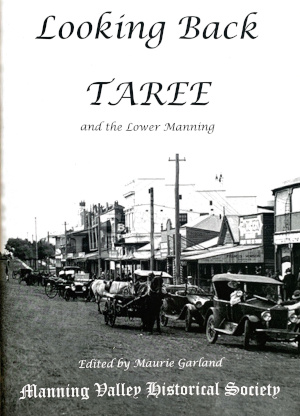
Edited by Maurie Garland
This is a photo collection from the archives of Manning Valley Historical Society (MVHS) with more of a story about them. Many of the photos in this collection have not been published before. MVHS always appreciates photos from the public to increase our collection. We have few photos about many sports in their early days and very few photos about Manning Aboriginal stories.
Softcover
68 pages with many photographs
21 cm x 29.5 cm
Printed 2024
Cost: $20
John Ramsland
“In this lively history John Ramsland provides compelling case studies of some of the gaol’s infamous inmates from the past two centuries………”
Dustjacket
Softcover
78 pages
14 cm x 20 cm
First published 2001
Cost: $10
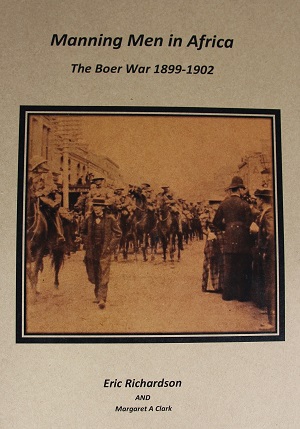
by Eric Richardson & Margaret A. Clark
Eric Richardson has researched and recorded the attitudes of residents in the Manning Valley to this military campaign from newspaper reports of the time. His work acknowledges the courage and dedication of the men who left the Manning Valley and fought in this “forgotten war”. It includes copies of letters from local servicemen to their families back home.
Softcover
104 pages
21 cm x 29.5 cm
printed 2017
cost $18
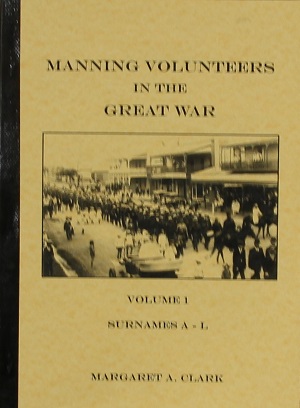
Volume 1 A – L
by Margaret Clark
Many men and women enlisted from the Manning Valley to serve their country during World War 1. They served in the army, navy, air force and medical services.
This record endeavours to portray the work of these men and women through the war dossiers held by the National Archives of Australia and the Australian War Memorial Museum.
268 pages with photographs
A4 (21 x 29.7cm)
Printed 2019
Cost $27
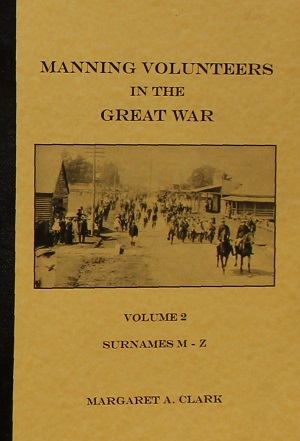
Volume 2 M – Z
by Margaret Clark
Many men and women enlisted from the Manning Valley to serve their country during World War 1. They served in the army, navy, air force and medical services.
This record endeavours to portray the work of these men and women through the war dossiers held by the National Archives of Australia and the Australian War Memorial Museum.
268 pages with photographs
A4 (21 x 29.7cm)
Printed 2019
Cost $27
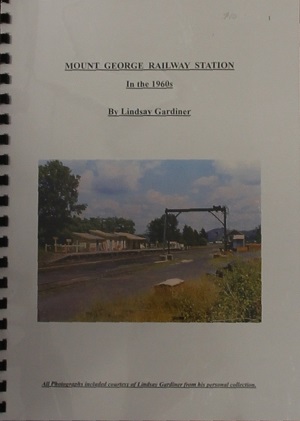
by Lindsay Gardiner
Lindsay writes about his memories, experiences and observations as a young Assistant Station Master appointed to Mt. George railway station during 1961 – 62.
27 pages with photographs
14 x 21.5cm
Printed 2019
Cost $10.00


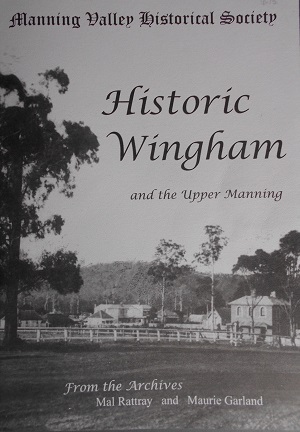
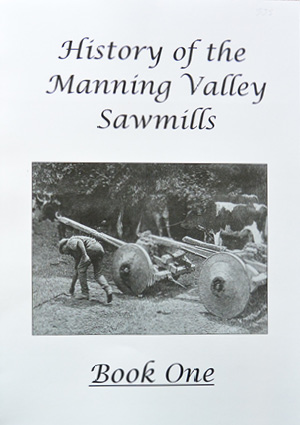
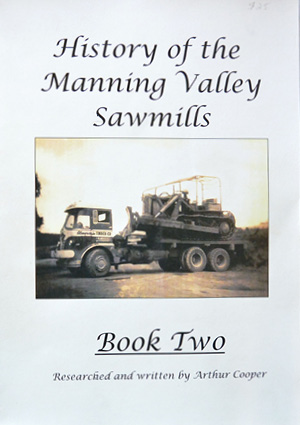

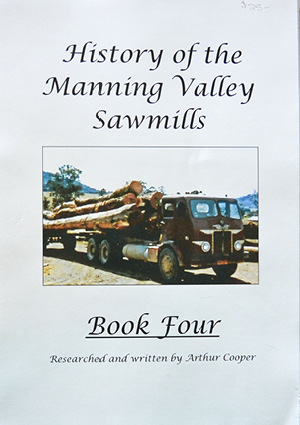
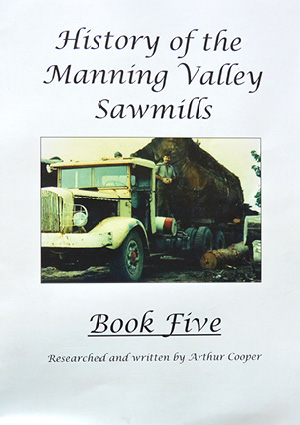

 Arthur Cooper and Pam Murray
Arthur Cooper and Pam Murray